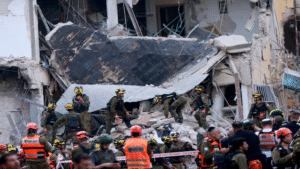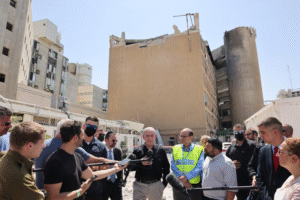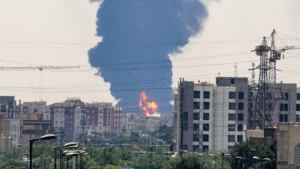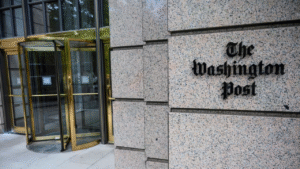The Unyielding Vow: Netanyahu’s Quest to Neutralize Iran’s Nuclear Threat
Israeli Prime Minister Benjamin Netanyahu’s steadfast pledge to “neutralize Iran’s nuclear threat” has long been a cornerstone of his political agenda, and as the current conflict intensifies, this vow has taken on an even more urgent and perilous dimension. Reports indicating Israel’s readiness to strike Iran’s nuclear and missile sites independently, while simultaneously welcoming international assistance, underscore a critical juncture in the long-standing geopolitical rivalry. We will explore the historical context of Netanyahu’s commitment, the implications of Israel’s declared capacity for independent action, and the complex international landscape that such a move would inevitably ignite.

Historical Roots of a Strategic Imperative
Netanyahu’s pronouncements on Iran’s nuclear ambitions are rooted in decades of deep-seated concern within Israel. For years, he has vociferously warned the international community about the existential threat a nuclear-armed Iran would pose to the Jewish state, often employing stark comparisons to the Holocaust. His famous “bomb cartoon” presentation at the UN in 2012 and his impassioned plea to the US Congress against the 2015 Iran nuclear deal (JCPOA) exemplify his unwavering conviction that Iran’s program is geared towards weaponization, despite Tehran’s persistent claims of peaceful intent. This historical consistency highlights that Netanyahu’s current stance is not a reactive measure to recent escalations, but the culmination of a deeply ingrained strategic imperative. The ongoing enrichment of uranium to near-weapons-grade levels and a perceived lack of full cooperation with international inspectors from the IAEA have only fueled Israel’s alarm.
The Prospect of Independent Action
The recent reports suggesting Israel’s preparedness to act independently in striking Iran’s nuclear and missile facilities introduce a significant and dangerous escalation. While Israel has a long history of covert operations against Iran’s nuclear program, including alleged cyberattacks and assassinations of scientists, a direct, overt military strike would be an unprecedented step. Such an operation would demand immense military capability, precision, and a robust understanding of Iran’s deeply buried and hardened facilities, like Fordow and Natanz. Israeli officials have expressed confidence in their ability to carry out such strikes, and recent military actions in the wider conflict have been interpreted by some as a demonstration of their capacity to degrade Iranian military assets, including missile launchers and air defenses. The implicit threat is that if international efforts fail to curtail Iran’s nuclear program, Israel will not hesitate to take unilateral action, adhering to its long-standing “Begin Doctrine” of preventing hostile states from acquiring weapons of mass destruction.
Navigating a Volatile International Landscape
However, the international implications of an independent Israeli strike are vast and potentially catastrophic. While the G7 leaders have collectively reiterated that “Iran can never have a nuclear weapon” and affirmed Israel’s right to defend itself, there is also a strong call for de-escalation and a return to diplomacy. The United Nations Secretary-General has expressed deep concern, urging “maximum restraint” and emphasizing that nuclear facilities “must never be attacked.” The International Atomic Energy Agency (IAEA) has also stressed the grave consequences of any military action jeopardizing nuclear safety and security. The United States, a crucial ally of Israel, finds itself in a delicate balancing act. While President Trump has provided strong backing to Israel, reports suggest that the U.S. is carefully weighing potential military involvement and that discussions are ongoing regarding a diplomatic solution. A unilateral Israeli strike would test these alliances and could trigger a wider regional conflagration, with unpredictable consequences for global peace and energy markets.
Conclusion: A Perilous Crossroads
In conclusion, Prime Minister Netanyahu’s unyielding vow to neutralize Iran’s nuclear threat is a reflection of Israel’s profound national security concerns. The current escalation of conflict and Israel’s declared readiness for independent action underscore the gravity of the situation. While Israel asserts its sovereign right to self-defense and possesses formidable military capabilities, the path to neutralizing Iran’s nuclear program is fraught with immense geopolitical risks. The international community, while sharing concerns about Iran’s nuclear ambitions, is largely advocating for restraint and diplomatic solutions. The coming weeks will likely determine whether Netanyahu’s long-held pledge is fulfilled through a concerted international effort or through a perilous unilateral military undertaking, with profound implications for the stability of the Middle East and beyond.




















